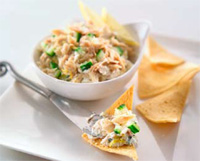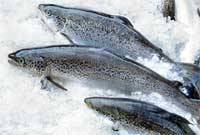Warren Maginn Little Genius Brain Boost Interview

Warren Maginn Little Genius Brain Boost Interview
The ring of school bells calls for an extra brain boost to keep your little ones running at full steam from dawn to dusk.
A daily dose of omega-3 supplements has been shown to help boost brain activity and improve reading and the behaviour of underperforming children, according to a recent study by the University of Oxford.
The study showed that reading was significantly improved in the children who were initially the poorest readers in the group. In addition, parents of these lower-performing children also reported an overall improvement in behaviour.
Warren Maginn, Clinical Nutritionist and spokesperson for Nordic Naturals says, 'The omega-3 essential fatty acids in fish oil known as EPA (eicosapentaenoic acid) and DHA (docosahexaenoic acid) help support the transmission of brain signals and provide the necessary building blocks for healthy tissue development".
'The positive results of the study showed that taking omega-3 supplements helped children catch up with their peer groups, and assisted with the improvement of concentration levels".
Little Genius School Tips for a -Head' Start:
Mould your children's creative interests and involve them in hobbies to stimulate the brain. The opportunities are endless, including art classes, dancing, singing, instruments and drama.
Pack protein-based meals with omega-3 rich foods such as salmon and cold-water fish. Remember to include fibre-rich whole grains, which are a key source of fuel for growing bodies.
Classroom concentration is key.
Play fun brain games to get the mind jumping through hoops. Sudoku, chess, riddles, brainteasers, crosswords and puzzles are all games to help train the brain.
Team sport not only builds confidence and leadership skills, but also has shown links to academic achievement. Get your children involved in after-school sports or even kicking a ball around the garden after dinner.
Interview with Warren Maginn
Warren is a Clinical Nutritionist who specialises in the treatment of chronic health concerns through the principles of Functional & Integrative Medicine. Warren holds a bachelor degree in Nutritional Medicine and a graduate certificate in Human Nutrition from Deakin University. Warren lectures students of Nutritional Medicine in Brisbane Australia and is the National Technical Educator for Research Nutrition, supporting naturopathic and medical practitioners in their use of functional pathology testing and associated supplement prescriptions, as the basis to modern integrative health management.
Question: How are omega-3 levels are associated with higher cognitive performance?
Warren Maginn: The omega-3 essential fatty acid, docosahexaenoic acid (DHA), is essential to normal brain function throughout life, supporting development, memory and learning. There is strong scientific evidence that both DHA and the essential fatty acid, eicosapentaenoic acid (EPA), help contribute to overall cognitive health, and research consistently shows that fish oil is associated with higher cognitive performance in children.
Question: Is this specific to infants, toddlers and children, only?
Warren Maginn: No, the importance of essential fatty acids is critical for everyone. They are called 'essential" because they are required for optimal health but cannot be produced by the body. They must be taken in through the food we eat or through supplements. Omega-3s are fundamental to healthy development in children, as well as helping to support the immune system and reducing inflammatory processes in adults, which contributes to heart, brain and cognitive health.
Question: Why else is omega-3 important to our young children's health?
Warren Maginn: DHA is the predominant fatty acid present in the brain and retina. It makes sense then that a developing foetus and a newborn infant have particularly high requirements for DHA, and that they are dependent on their mother's intake during pregnancy and throughout breastfeeding.
DHA is paramount for optimal visual and mental development, and the proper functioning of the nervous and immune systems. Research has shown that infants of mothers who consumed DHA during pregnancy have higher levels of DHA than those whose mothers consumed little DHA. With adequate levels of DHA, a woman's body has the building blocks required to ensure and protect their child's healthy growth.
DHA is found in cold water fish such as tuna, salmon and mackerel, as well as some organ meats. Again, because the body cannot produce omega-3s, women who are expecting or nursing must consume them through food sources or dietary supplements in order to receive their benefits.
Question: How can parents ensure their children are getting enough omega-3?
Warren Maginn: It can be challenging to make sure children obtain sufficient omega-3 nutrition because of the Western diet most modern families consume. This diet tends to be light on cold water fish and green leafy vegetables, the best dietary sources of omega-3s. Also, children tend to be picky, opportunistic eaters. There may be a good source of omega-3s on hand, but children often prefer something else if it's equally available, or they will simply wait until their snack of choice is around.
Fortunately, there are great-tasting omega-3 supplements available for children to fill the nutritional gap created by limited food options and finicky young eaters. They often come in formulations that appeal to children, like flavoured liquids, gummies or chewable soft gels.
Question: How can we use this research to give our children a back to school brain boost?
The vast amount of research available today on the benefits of fish oil for children might be of interest. Fish oil has been shown to improve children's cognitive development and prevent disease. Lower levels of omega-3 fatty acids are associated with behavioural disorders including ADD and ADHD. Omega-3s have also been found to have therapeutic benefits on childhood depression. This fatty acid is essential for brain and eye development before birth, and continues to be an essential fat for cognitive development and disease prevention throughout childhood.
The warnings for pregnant woman and small children to limit fish consumption due to high mercury and polychlorinated biphenyls (PCB) levels present in many fish species presents a challenge in obtaining omega-3s daily. Recently some fish oil supplements have come under scrutiny for containing unacceptable levels of PCBs. A high quality, purified fish oil will not pose any danger and is, in fact, the best source of omega-3 essential fatty acids. Manufacturers should always be willing to provide third-party certificates of analysis to verify the purity and quality of their products. Educating consumers on what to look for in their supplements can ultimately clear up confusion and fear about fish oil supplements.
Question: What types of omega-3 rich foods can be packed in the school lunchbox?
Warren Maginn: Some examples of foods that are rich in omega-3s that may be suitable for your child's lunchbox include cold water salmon, natural yoghurts, free range eggs from pasture-fed animals, walnuts and edamame beans, among others.
Question: What is the RDI of omega-3 and how can we ensure we are meeting this requirement?
Warren Maginn: The expert-recommended daily intake is a minimum 500mg per day for adults, and anywhere between 200 and 400mg for children (2-12 years), of a combination slightly higher in DHA than EPA, due to their developmental needs being slightly greater for DHA during childhood.
It is equally important to limit intake of another essential fatty acid, omega-6. Proper cell function is dependent on a balanced intake of omega-3s and omega-6s. We consume omega-6 in red meat, eggs, dairy products, and vegetable oils like soy and corn oil. Processed foods, which we tend to rely on in our fast-paced modern lives, are generally loaded with omega-6.
Question: Are these types of food just as important for adults?
Warren Maginn: Absolutely – as we age, our body is under fire from inflammatory activity caused by the stress and pollution in our daily lives, as well as the natural ageing process. As such, we need to supplement our intake of healthy omega-3s in order to help maintain our immune system and healthy functioning of our heart and brain throughout life.
Question: Do you recommend omega-3 supplements?
Warren Maginn: Yes, omega-3 supplements form a fundamental part of my practice. A person would have to eat an impractical amount of fish to even come close to tipping the balance of omega-3 over omega-6 fats in most household circumstances. That is why a fish oil supplement is of such benefit in so many individual cases.
Question: How can parents stimulate their child's brain, outside of school?
Warren Maginn: There are many ways to help stimulate a child's brain outside of school. Try playing games with your kids including numbers, puzzles and perhaps my favourite the -memory game'. Getting them involved in physical activities will help them with their motor skills and increase blood flow, which in turn may help with concentration levels and behaviour. Reading interactive bedtime stories can also increase healthy brain activity while they rest, providing some valuable encouragement and reassurance.
For information visit www.researchnutrition.com.au or call 1800 110 158.
Always read the label. If symptoms persist, consult your healthcare professional.
Interview by Brooke Hunter
Have You Seen This?
MORE











